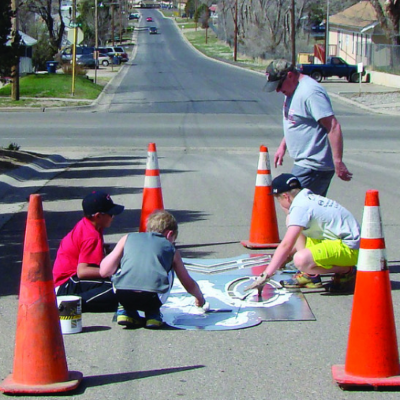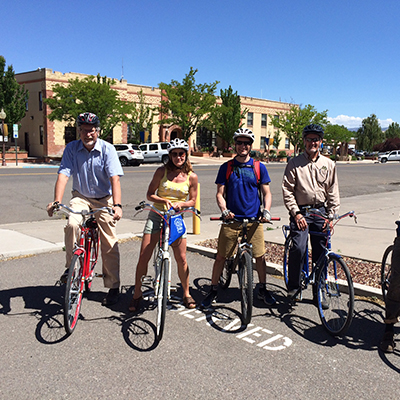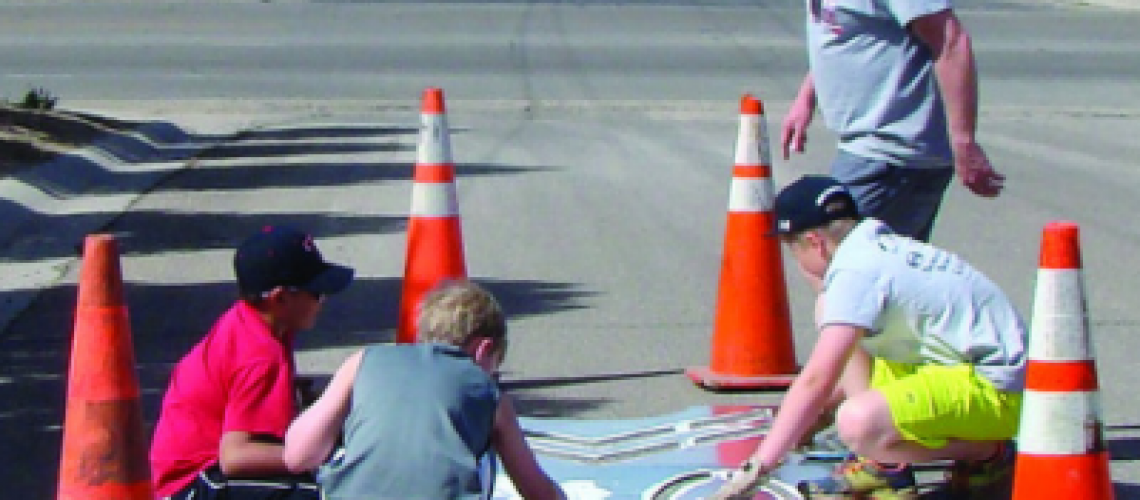The 2018 Legislative Session has Arrived — with Additional Funding and a Brewing Battle over Transportation

As the 2018 legislative session gets underway, transportation funding is once again in the spotlight. Securing stable funding for Colorado’s sorely underfunded transportation system, and in particular, dedicated dollars for walk, bike, and transit infrastructure remain a top priority for LiveWell Colorado.
Due to a combination of a strong economy, federal tax reform, and budget relief provided through Senate Bill 17-267 (reclassified the Hospital Provider Fee as an enterprise which means that money no longer counts as revenue toward the states’ TABOR cap), the General Assembly finds itself with additional revenue, estimated to be just short of $1 billion, to allocate or save during the 2018 budget process.
Given this influx of available funding, it’s easy to jump to the conclusion that transportation infrastructure will get a boost in funding. However, there are many other areas of the state budget also vying for an increase—notably K-12 education, higher education, and the Public Employees Retirement Association (PERA) pension funds. The funding decisions will make this a particularly interesting budget year. To stake their claim, the first bill introduced in the Republican-controlled Senate would use a significant portion of the newly available state revenue for transportation funding. This bill, Senate Bill 18-001, is sponsored by Republican Senators Randy Baumgardner (R, Hot Sulphur Springs) and John Cooke (R, Greeley) and Representatives Terri Carver (R, Colorado Springs) and Perry Buck (R, Windsor). Specifically, SB18-001 will ask voters to issue bonds to be used to fund the expansion of Interstate 25 between Denver and Fort Collins, expand Interstate 70 through the mountain corridor, improve major rural roadways and cover the cost of all of the projects listed as being “Tier 1” (high priority) with the Colorado Department of Transportation (CDOT). You may have noticed, this proposal almost exclusively targets roads and bridges and does not address the more comprehensive transportation quagmire the state faces, including the multi-modal needs for which LiveWell has been advocating.
On the Democrat side of the equation, although transportation is also a priority, there is an acknowledgment that many facets of the state budget have seen reductions over the past decade and are important priorities as well. Speaker of the House Crisanta Duran (D, Denver) noted in her opening day remarks the many issues that need to benefit from the increased revenue include affordable housing, health and child care, and K-12 education, which has received some $820 million less over the past 10 years than originally envisioned through Amendment 23 (a constitutional amendment passed by voters in 2000 to increase K-12 school funding; however, because of leans budgets the past 10 years, the legislature has actually reduced, rather than increased, K-12 funding).
While Speaker Duran did not specify an amount to spend on transportation in her remarks, Governor Hickenlooper’s proposed budget provides an additional $148 million from increased revenues to transportation funding this year, with more than $100 million of General Fund revenue in subsequent years. The Governor also stressed that the budgeted amount will not be nearly enough to solve our transportation problem and does not devote any funding to our city and county transportation needs. The Governor stated, “It’s time we look at a long-term solution with a sustainable funding source. There’s broad agreement—across party lines. Coloradans deserve the opportunity to vote on whether we need new resources and where they should come from. It’s time to go to the voters.”
Which brings us to the next piece of the puzzle. As we have mentioned in previous updates, the coalition of transportation advocates that led the charge to pass House Bill 17-1242 last year (which did not pass) has been working hard over the past several months to write a ballot measure to go before voters in November that comprehensively addresses transportation through a statewide sales tax increase. LiveWell continues to advocate for this approach as it will include dedicated funding for multi-modal options, as well as giving flexibility to local governments to appropriately address their specific transportation needs. In other words, a local government could use all their dedicated dollars for roads and bridges, or they could use the money for walk/bike connections to transit, or any combination in between. At this point, the anticipated allocation of funding for the ballot initiative would be 45 percent to CDOT, 20 percent to municipalities, 20 percent to counties, and 15 percent to multi-modal. The percent sales tax increase has not been decided upon but is likely to fall between a half and one cent.
Senate Bill18-001 is scheduled for its first committee hearing on January 23rd. We also expect several other transportation-related ballot titles to be filed in the coming weeks. Both of these actions will give us further information on how and when to engage our partners and best use our advocacy voice.

